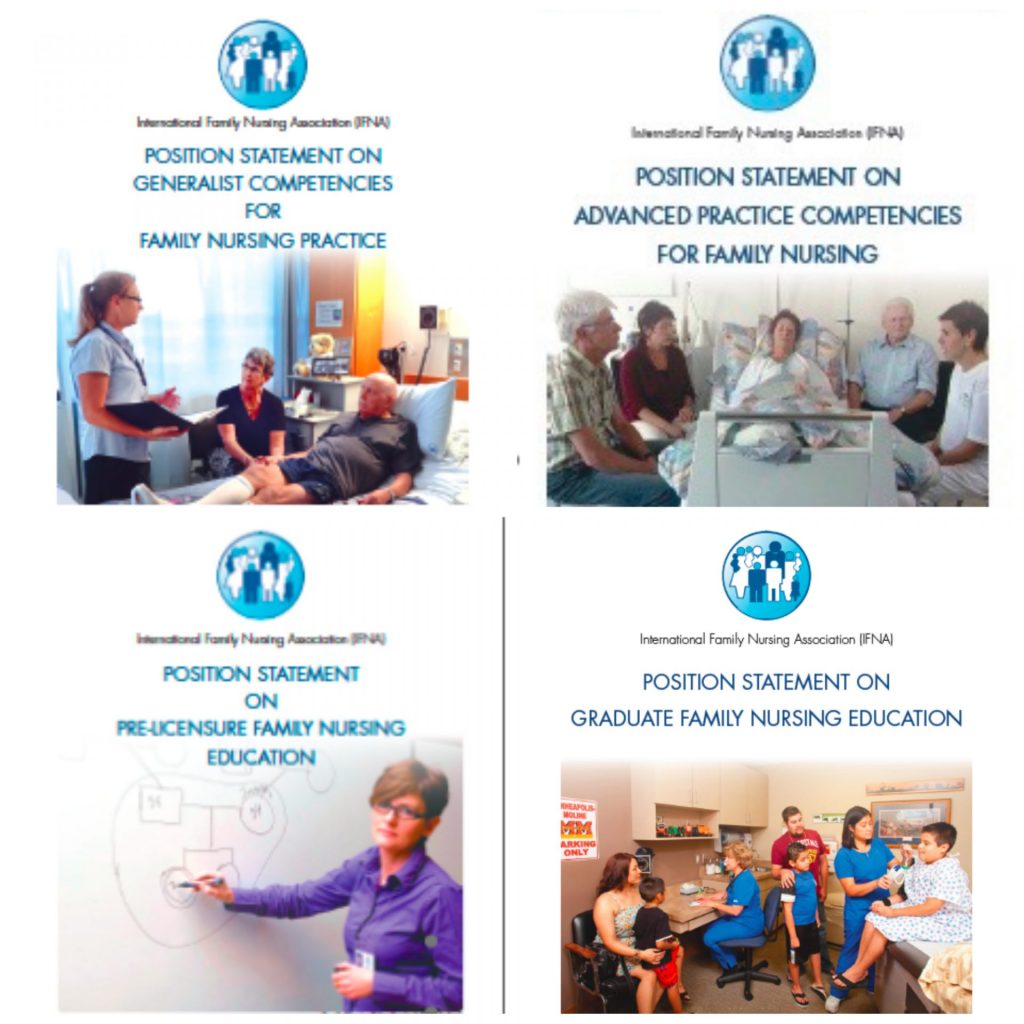Our global community of family nursing has been privileged to witness the growth of family nursing publications, family nursing textbooks, and family nursing practice models over the past four decades. As useful as all of these resources are for growing the science and practice of family nursing, there are several seminal works which make some large declarations about practice with families that I believe are a “MUST READ” for all family nurses and any health care professionals who place families at the center of their care and offer family-focused care with compassion, competence, and confidence:
1. International Family Nursing Association (IFNA) (2013). IFNA Position Statement on Pre-Licensure Family Nursing Education.
2. International Family Nursing Association (IFNA) (2015). IFNA Position Statement on Generalist Competencies for Family Nursing Practice.
3. International Family Nursing Association (IFNA) (2017). IFNA Position Statement on Advanced Practice Competencies for Family Nursing.
4. International Family Nursing Association (IFNA) (2018). IFNA Position Statement on Graduate Family Nursing Education.
5. International Council of Nurses (2002). Nurses always there for you: Caring for families. Information and action tool kit (Part 1). Geneva, Switzerland: Author. I particularly like the ideas included in “The Nine-Star Family Nurse” on page 10. This document also identifies four models for family assessment and intervention, one of which is the Calgary Family Assessment and Intervention Models (Wright & Leahey, 6th edition, 2013).
6. Registered Nurses’ Association of Ontario (2006). Supporting and strengthening families through expected and unexpected life events (rev. suppl.). Toronto, Ontario, Canada: Author. This document identifies best practice guidelines for family-focused nursing care.
7. Victorian Order of Nurses (VON) (2012). Evidence-informed bereavement care: A primer of interventions towards health systems change. Toronto, Ontario, Canada: Author. While the focus of this document is the provision of community-based care for bereaved individuals and families, the nurse practice interventions described in this document (pp. 21-30) are systemic in nature and clearly target the whole family system. Interventions are also identified for other larger systems within which families and nurses exist. A special thanks to this outstanding Canadian research team led by Dr. Ariella Lang who is conducting research about knowledge translation and documenting the processes for translating critical knowledge about grief and bereavement to effect change in practicing professionals and the systems they work within.

